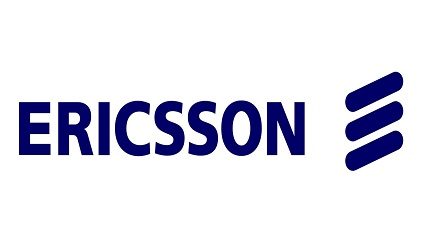Telecom
Ericsson, EY Study Maps Successful Mobile Operator Strategies

Ericsson and EY collaborate to identify three distinct strategies adopted by successful mobile operators, dubbed Frontrunners.
Successful operators share a common focus on network performance and customer experience; differentiation, innovation and technology approaches vary by strategy
Frontrunner revenues grew at 9.6 percent CAGR, their competitors at 2.7%, while average in markets with no Frontrunners is -1.4% (2010-2014).
With traditional revenues under pressure and mobile data use soaring, operators have been forced to evolve both their networks and their business models. Some have been more successful than others.
A study from Ericsson, in collaboration with Ernst and Young, has identified and classified these operators as Frontrunners.
Between 2010 and 2014, Frontrunners enjoyed a 9.6% CAGR while competitors in their markets achieved only 2.7%.
In undertaking this research, the results of which are launched today, Ericsson has identified three distinct strategies adopted by Frontrunners. Significantly, what is good for the end user is also good for the operator.
Frontrunner strategies include:
Quality-Led Progression: These Frontrunners differentiate through high-performing networks and high brand preference
Market-Led Adaptation: Includes Frontrunners that differentiate through quick adaptation to market conditions
Offering-Led Transformation: Refers to Frontrunners that differentiate by being first to market with uniquely designed offerings
The study also revealed a number of ways in which Frontrunners are similar including their views on connectivity and services as differentiators rather than commodities, and their focus on innovating new revenue streams rather than maximizing old ones.
Frontrunners display greater interaction between marketing and technical roles, rather than the traditional silos, and they leverage network performance by either utilizing superior network performance as a differentiator or by improving network performance to meet customer expectations.
Speaking on the development, Martin Sebelius, executive director of Nordic Advisory, EY, said: “We clearly see that despite their different strategies, frontrunner operators share a common commitment to network quality. Not surprisingly, Frontrunners constantly seek new ways of challenging industry conventions to make connectivity more relevant to people, business and society.”
Also, Stéphane Téral, research director, Mobile Infrastructure and Carrier Economics, Infonetics Research, now part of IHS Inc., said: “This is a well-reasoned study that helps operators in different markets answer the universal question of where to invest and generate returns. Operators are trying to keep up with the growth in data traffic while facing significant economic conditions, including flat-to-declining revenue in often saturated markets. As it provides a nuanced view drawing on a global scope, this study is exactly what is needed for operators to thrive in any market condition.
“In addition, mobile consumers are very savvy today and understanding what makes operators tick can help them make better decisions as to where to lock in their subscriptions — I think this study could be as interesting to consumers as it is to operators” .
On his part, Patrik Cerwall, head of Radio Strategic and Tactical Marketing, Ericsson, said: “We wanted to understand what makes operators successful in order to be the best partner to our customers. It may sound self-serving, but Frontrunners focus on growth, both enhancing the core business while at the same time exploring new markets and capabilities to secure future revenues, such as IoT (Internet of Things) and vertical solutions.
“The journey toward 5G in 2020 will be marked by both new technology advances and new business models, but that transformation really started with the shift from voice to data-driven networking. The operators who are managing that transition successfully may provide the blueprint for success in 5G,” Cerwall said.
Understanding these strategies can help more operators become Frontrunners. This may have a beneficial effect for all operators, as it appears that the presence of a Frontrunner in any given market benefits all operators in that market: peers of operators in markets with Frontrunners are growing at 2.7 percent while markets without Frontrunners have negative growth of 1.4 percent.
In 2013, most of the 12 identified Frontrunners were associated with the Quality-led strategy, leveraging their size and assets to deliver superior quality, and thereby achieve profitable growth. Market-led operators were in the minority and Offering-led operators had not yet joined the Frontrunner ranks.
In 2014, the number of Frontrunners increased to around 20 and included Offering-led operators. By 2015, it is projected that there will be 30 or more Frontrunners, with distribution between strategies starting to even out.
It is important to recognize that Frontrunners are not necessary market share leaders in their respective regions. In fact, in 2013, most Frontrunners were #3 by market position.
By 2015, it is projected that this, too, will even out with Frontrunners having representation across the top three market share positions.
Telecom
NLC Announces Nationwide Boycott over Telecom Hike

Nigeria Labour Congress (NLC), an umbrella group for trade unions, has announced that Nigerians are planning a statewide boycott of telecom services in protest of the Nigerian Communications Commission’s (NCC) recent approval of a 50% increase in phone costs.

Following carriers’ demands for cost-reflective charges amid challenging economic conditions, the NCC approved a 50% increase in telephone tariffs on Monday.
This hike, which fell short of the 100 percent increase that telcos requested, caused the average cost of calls to go from N11 to N16.5 per minute, the cost of 1GB of data to go from N287.5/GB to N431.25, and the price of SMS to go from N4 to N6.
“The adjustment, capped at a maximum of 50 percent of current tariffs, though lower than the over 100 percent requested by some network operators, was arrived at taking into account ongoing industry reforms that will positively influence sustainability,” the commission said.
In a statement issued , Joe Ajaero, president, NLC, denounced the tariff increase, calling it an unfair burden on those who are already facing financial difficulties.
He voiced concerns about the hike’s timing, pointing out that it comes while inflation and purchasing power are on the rise.
He said, “This decision, coming at a time when Nigerian workers and the masses are grappling with unprecedented economic hardship, is a clear assault on their welfare and an abandonment of the people to corporate fat cats.
“Telecommunication services are essential for daily communication, work, and access to information. Yet, an average Nigerian worker already spends approximately 10 percent of their wages on telecom charges.
“For a worker earning the current minimum wage of N70,000, this means an increase from N7,000 to a staggering N10,500 per month, or 15 percent of his salary—an unsustainable cost.
“NLC is not opposed to a tariff review but disagrees with the approved rate of increase. We therefore call on the government, the NCC, and the National Assembly to stop the implementation of this ill-advised hike to allow a reasonable conversation around it.
“If the dialogue agrees on the need for the hike, then we can all seek a more humane increase and definitely not this 50 percent hike,” he stated.
The NCC added that rate adjustments were made to close the gap between current tariffs and growing operating costs without compromising service delivery to customers.
Telcos had complained that a 300 percent increase in operational costs was forcing them to shut down.
Telecom
FG, WIOCC Sign $10M MoU to Connect 3 million Homes with Broadband Fibre Connectivity

WIOCC Group, a provider of digital infrastructure and connectivity solutions, is pleased to announce a strategic partnership with the Federal Ministry of Communications Innovation & Digital Economy (FMCIDE) of Nigeria.

This collaboration aims to accelerate the development of Nigeria’s digital economy through substantial investments in critical digital infrastructure and comprehensive stakeholder engagement.
The partnership, formalized through a Memorandum of Understanding (MoU), marks a significant milestone in the efforts to enhance digital connectivity and inclusion across Nigeria. Represented by the Honourable Minister, Dr. ‘Bosun Tijani, and WIOCC Group’s Chief Development Officer, Mr. Darren Bedford, the agreement outlines a shared vision for fostering technical efficiency and collective prosperity.
The partnership focuses on enhancing stakeholder engagement by jointly reviewing and improving the National Policy on Telecommunications to meet digital economy needs. WIOCC Group commits to investing in Nigeria’s digital infrastructure, deploying a hyperscale open-access digital platform for internet service providers (ISPs) with advanced fibre and colocation facilities.
Additionally, through this partnership, the collaboration with the Nigerian Broadband Alliance for Nigeria aims to improve broadband quality and accessibility, with WIOCC expanding fibre infrastructure and partnering with ISPs to connect more homes and businesses. The partnership also includes WIOCC providing digital infrastructure training and supporting job creation for Nigerian youth.
Commenting on the partnership, WIOCC Group’s Chief Business Development Officer, Mr. Darren Bedford said, “The MoU with the Ministry of Communications underscores our commitment to supporting Nigeria’s digital transformation, by working together, we aim to create a robust digital ecosystem that benefits all stakeholders and drives sustainable economic growth”.
Dr ‘Bosun Tijani stated that “This collaboration with WIOCC Group represents a significant step forward in our commitment to ensuring that Nigerians have access to reliable and high-quality telecommunications services. We are committed to building a resilient digital infrastructure that fosters innovation, inclusion, and economic growth.
“Working with the private sector to deliver last-mile connectivity to homes and businesses, amongst other key benefits, is essential to achieving this vision, and we are excited about the opportunities this collaboration creates for empowering communities across Nigeria”.
Telecom
QNET Champions Education Accessibility with QLearn on International Day of Education 2025

QNET, a global leader in lifestyle and wellness-focused direct selling, celebrates the UNESCO International Day of Education 2025 by advancing educational access for learners of all ages through its innovative e-learning platform, QLearn.

This year’s theme, “AI and Education: Preserving Human Agency in an Automated World,” highlights the critical role of education in empowering individuals to thrive in an AI-driven future.
According to the World Economic Forum’s Future of Jobs Report 2025, technological advancements and the green economy are projected to create a net gain of 78 million jobs globally by 2030.
However, the report also emphasizes the need for education reform and reskilling to address the skills gap generated by AI advancements and to prepare individuals for an evolving, automated job market.
In response to these global shifts, QNET’s QLearn platform offers accessible, high-quality e-learning solutions, covering everything from professional development to K-12 education.
These courses are designed to help individuals acquire the knowledge and skills necessary to excel in a rapidly changing world
Biram Fall, QNET’s Regional General Manager for Sub-Saharan Africa, shared his thoughts on the International Day of Education: “In today’s fast-evolving technological landscape, education is more important than ever.
“As AI reshapes industries, fostering adaptability through innovative learning is crucial. Through QLearn, QNET is committed to providing quality education and empowering individuals to shape their futures.”
Beyond QLearn, QNET is actively engaged in global educational initiatives, such as FinGreen, its financial literacy program, and strategic partnerships with organizations like the Lagos Food Bank Initiative (LFBI) in Nigeria.
Together with the LFBI, QNET has provided nutritious meals to over 1,000 underserved students under the EDUFOOD program, helping reduce absenteeism and improve academic performance.
QNET continues to play a significant role in global efforts to position education as a pillar of sustainability and equity.
By leveraging digital tools and the transformative potential of AI, QNET is working to bridge educational gaps and empower communities to thrive.

 Telecom14 hours ago
Telecom14 hours agoSamsung Galaxy S25 Series: Redefining Smartphones with Advanced AI Integration

 Telecom14 hours ago
Telecom14 hours agoMTN’s New Year Campaign: Inspiring Change, One Move at a Time

 General News14 hours ago
General News14 hours agoCBN’s FX Code to Boost Transparency for Launch on January 28

 Telecom20 hours ago
Telecom20 hours agoFCCPC Insists Telcos’s Tariff Hike must Translate to Improved Services

 General News20 hours ago
General News20 hours agoFG Plans Aircraft Manufacturing in Nigeria

 Telecom14 hours ago
Telecom14 hours agoFG, WIOCC Sign $10M MoU to Connect 3 million Homes with Broadband Fibre Connectivity

 Telecom14 hours ago
Telecom14 hours agoNLC Announces Nationwide Boycott over Telecom Hike

 Telecom14 hours ago
Telecom14 hours agoMainOne Boosts Connectivity for West African Businesses with Equiano Cable













